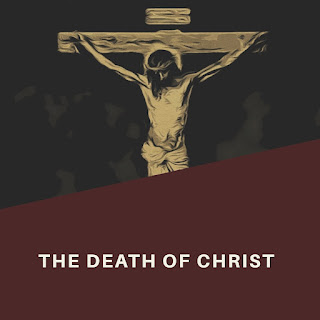THE DEATH OF CHRIST
The
author of the book of Hebrews, writing about Jesus, narrated: “since the
children have flesh and blood, he too shared in their humanity so that by his
death he might break the power of him who holds the power of death – that is,
the devil – and free those who all their lives were held in slavery by their
fear of death” (2:14,15). This text raises several questions, but I quote
only two, per hour, namely: the need for God's entry into humanity, through the
person of the Son; and the reason for Jesus' sacrifice on the cross to save
human beings from death.
These
are complex and difficult issues to address in a few lines. But in brief words,
it can be affirmed that the Son entered the world because humanity was held
hostage by the same angelic, fallen being, who tried Adam: the Devil. The
author of Hebrews says that he "has the power of death", but
commentators of the New International Version Bible explain that "Satan
holds the power of death only in order to induce people to sin and be subject
to the punishment of sin that is death" (Ezekiel 18:4 ; Romans 6:23)
[1].
In
fact, Paul writing to the Romans said that death entered mankind through adamic
sin and therefore all die (5:12). Thus, no human being can overcome the power
of death, for all are born sinners (3:23). Thus, it was necessary a man,
without sin, who would be subjected to temptation, like Adam, and overcome it.
For this reason Scripture says that Jesus Christ was generated by the action of
the Spirit of God, without sin, in the womb of a virgin (Luke 1:35). There was
no male participation in the generation of Jesus. Then, in the right time, the
Holy Spirit himself led him into the wilderness in order to be tempted by the
Devil (Matthew 4.1-11).
Note,
then, that Jesus Christ is not a human being who has risen morally above
humanity and became holy. According to the apostles, who walked with Him, Jesus
is the Creator himself who became a creature to rescue the man from the power
of evil. In his victory over sin, he became worthy representative of mankind
before God the Father. That's why the author of Hebrews wrote: “for we do not
have a high priest who is unable to empathize with our weaknesses, but we have
one who has been tempted in every way, just as we are – yet he did not sin
(4:15).
Therefore,
just as Adam placed his will above the divine and renounced his life in God's
presence, it was necessary a man who would renounce the life of this world that
was set up in the original sin. Christ did so from the beginning to the end of
his earthly existence. His renunciation of the world and the submission of his
human will to the divine led him to a life of obedience to God incompatible
with the corrupt scheme of this era, which resulted in his death.
Christ
died for not yielding to the seduction of the fallen world, but on the third
day God raised him from the dead and sat him on his right, for it was not right
for a saint to remain among the dead (Ephesians 1:20). Jesus' death was received by
the Father as an eternal sacrifice of love for humanity, for He, as a man, did
what was impossible for the fallen human being: to fulfill the divine Law and
to show unwavering love to God. For this reason, the holiness of Jesus is
projected upon all mankind and thus man can also be justified before God.
But
this justification or salvation of eternal death is not universal and
automatic. Man needs to turn to God, reconcile with Him, and live a life of
worship to Him. The essence of the worship that God taught ancient Israel
consists in sacrifice. Therefore, their worship consisted of the death of a
lamb or other animals (Exodus 12; Leviticus 1). In Leviticus 17:11, it is
written: “for the life of a creature is in the blood, and I have given it to
you to make atonement for yourselves on the altar; it is the blood that makes
atonement for one’s life”. The Hebrew author said, “...without the shedding of
blood there is no forgiveness” (9.22).
It is in this sense that John said that “...the blood of Jesus, his Son, purifies
us from all sin” (1 John 1:7).
Of
course, today, we don't have to sacrifice animals to worship God. This kind of
worship ended with the death of Christ, "the Lamb of God who takes away
the sin of the world" (John 1:29), a sacrifice that always remembered and
revived in the Eucharist. However, worship of God always has a sense of
sacrifice as the Apostle Paul explains: “therefore, I urge you, brothers and
sisters, in view of God’s mercy, to offer your bodies as a living sacrifice,
holy and pleasing to God – this your true and proper worship. Do not conform to
the pattern of this world, but be transformed by the renewing of your mind.
Then you will be able to test and aprove what God’s will is – his good,
pleasing and perfect will” (Romans 12.1,2).
Antônio
Maia - M.Div.
Direitos
autorais reservados
[1]
Bíblia NVI Comentada. São Paulo: Editora Vida, p. 2096



Comments
Post a Comment